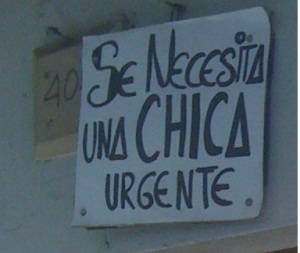The last part in Tom Hanlon Wilde’s series from Cuzco, Peru
Q: What has been the extremely significant change in the last ten years for the farmers in Aguilayoc? A: The role of off-farm income.
All too often, small scale farmers in coffee areas had no other ways to generate meaningful income: outside jobs were nonexistent, while the prices of other crops were abysmally low. With coffee as the only source of monetary income, and that income fluctuating wildly, farmers needed to grow virtually all their own food. That reality, combined with growing populations and no realistic income opportunities for the extended family, often caused acute poverty.
In contrast, off-farm income has increased dramatically for the farmers of Santa Ana district in which the Aguilayoc Co-op is located. During our visit, farmers mentioned two main sources of off-farm income — professional jobs their children have and local government public works projects — and both of these are a result of the groundwork laid by the fair trade partnerships over the past 20 years.
In older reports on small scale farmers, we frequently mentioned their use of the increased incomes to invest in their children’s education. For many of the farmer members, that education has been complete and their children now have full-time jobs. Juana Pezo Suero’s oldest son, Robert and youngest daughter, Vanessa completed their post-secondary studies to become licensed teachers. Robert is in his third year as a teacher, choosing to serve a very remote and isolated village in Vilcabamba. Vanessa didn’t apply to return to teach this term because after last school year, she landed an interesting and well paying job in a notary office. Enrique Mellado’s two eldest sons work together in a construction and building supply store. Elias and Yolanda’s 3 eldest children also finished their post-secondary studies (thanks in part to extra income from fair trade) and now all three work in the city of Cuzco. Many, like Carlos Huillca, are farming land inherited from their parents, but we met families where typically one child chose to farm and the other 1-3 kids moved into other kinds of work.
All of those farmers are proud to have raised children who are now pursuing their own professions. And when those same farmers need to travel to town, or need to buy farm equipment or building supplies, it’s their adult children who pay for those things. So those off-farm salaries are lowering the percentage of household income that comes from coffee exports even at a time of higher coffee prices.
The second major phenomenon increasing off-farm income is due to the co-op’s successful efforts to get local and provincial government agencies to provide services for coffee farmers. COCLA has pushed hard to get authorities to understand the importance of coffee farming and to have the public sector invest in agricultural extension services, road improvements, regional irrigation systems, and reforestation systems to benefit COCLA members and their neighbors. Those investments are now happening. One of the three staff agronomists for Aguilayoc is paid for by the municipal government, which is also building an irrigation system throughout the community. Whereas 10 years ago our travel to Aguilayoc was delayed by road washouts and mini landslides, this time the delay was due to new culverts and bridges being installed on the route. In the area of another co-op, Huadquina, the municipal government is paying farmers to re-forest a large section of land.
Farmer members of Aguilayoc complained that municipal government public works projects had driven up the cost of hiring day laborers. The going day labor rate in Aguilayoc was $2.50 per day in 2001, but had jumped to $9.25 now. “The municipal government is paying $9.25 a day, so we can’t get anyone to work unless we pay that now” was a frequent lament we heard by growers. However, that sword cuts both ways. If a farmer or, for instance, his grown son, is looking to supplement his income, he can work on such projects during times when crops need less attention. Also, the vibrant agricultural sector combined with active government spending (fueled largely by taxes on mining activities) has increased employment in the cities and increased food prices. Higher food prices mean growers can get meaningful prices for the plantain, citrus, and livestock they keep integrated into their coffee crops.
Poverty is tenacious, and the rural areas around Quillabamba still report rates of child undernourishment, maternal and infant mortality, and low life expectancy that are alarming by U.S. standards Farmers organizing to improve life for their families, to gain better access to the consumer, and to advocate for public resources are, however, having a notable effect in Aguilayoc. Ten years ago the dominant theme was “good man needs work”, but this year the theme is “help wanted.”
Our Help Wanted sign is up too. We need you as a consumer, an advocate, an investor and a community leader in furthering support for small scale farm families. As the signs say, “Se Necesita Chico” (need a good man) and “Se Necesita Chica Urgente” (need a good woman, right away!)


You need to be a member of The Co-op Underground to add comments!
Join The Co-op Underground